
More than half of the world’s population, some four billion people, have been participating in elections in 40 countries this year. Haggie Partners is regularly covering these, with a particular focus on two of the contests: the US Presidential election on 7 November and the follow-up to the UK General Election that took place on 4 July, monitoring the policies, personalities and promises that will shape the future.
August 2024
Edition 6
Harris builds campaign around economic strength and ‘care economy’
President Biden ended his re-election campaign bid on 20 July and endorsed his vice president, Kamala Harris to replace him. The Harris election campaign told Reuters on 28 July that it has raised $200 million and signed up 170,000 new volunteers in the week since she became the Democratic Party’s presidential candidate.
Harris’ late entry into the presidential race has left Donald Trump, who survived an assassination attempt on 13 July, revamping his strategy, and testing new attack lines on Harris, according to Bloomberg on 25 July. “Lyin’ Kamala is the most left-wing politician in the country,” Trump said on 25 July at a North Carolina rally. “She is a radical left lunatic who will destroy our country,” he claimed, calling her “the ultra-liberal driving force behind every single Biden catastrophe.”
Trump’s inflammatory rhetoric arguably risks alienating the undecideds in swing states who are likely to cast their vote, in the main, on each candidate’s economic stance.
Harris will aim to exploit the apparent strength of America’s economy, however one of the biggest challenges facing Democrats is lifting the negativity many Americans have about the economy, stemming from sharply higher prices for everything from groceries to rent over the past four years. Americans are paying 20% more for goods and services compared to January 2021, according to Consumer Price Index data.
US economic growth in the first half of the year was solid, with the economy expanding by 2.8%, according to fresh Commerce Department figures released on 25 July. Similarly on 26 July, the Federal Reserve’s inflation rate moved closer to the central bank’s 2% target boosting the likelihood of a rate cut in September.
Democrat strategists hope that the Harris campaign will benefit from what the Biden administration referred to as ‘Kamala’s care economy,’ which refers to the labour – often poorly paid, if paid at all – done by people taking care of children or the elderly.
Harris has pushed for more funding for childcare facilities and been a vocal advocate of the administration’s push to enhance the child tax credit, after a pandemic-era expansion led to a dramatic reduction in child poverty.
Democrat strategists hope that the Harris campaign will benefit from what the Biden administration referred to as ‘Kamala’s care economy,’ which refers to the labour – often poorly paid, if paid at all – done by people taking care of children or the elderly.
‘Universal pre-k,’ also known as ‘preschool access for all,’ ensures any family who wish to enrol their preschool-aged child in a publicly funded, pre-kindergarten care and education programme can make that choice. In the same ‘care economy’ vein, the White House recently announced a plan to cap rental increases nationwide and has allocated funds to expand the supply of affordable housing.
Biden administration officials say that as President, Harris would hold mainstream centre-left views on economic policy that show continuity with, rather than stray from, Biden’s approach. “I feel that the core values that have been reflected in the policies of this administration are ones that vice-president Harris deeply embraces,” US treasury secretary Janet Yellen said during a press conference at the G20 summit in Brazil on 25 July. “She obviously supports middle class families, she knows that they are the key to America’s economic strength,” added Yellen. “She’s been focused on creating good jobs, lowering costs for Americans in crucial areas like childcare and healthcare, training workers in industries of the future.”
If re-elected, her opponent Trump’s economic plans would be to cut domestic taxes and he has floated the idea of reducing the federal corporate tax rate from 21% to 15%. He also threatened to raise trade barriers with the rest of the world, with a possible blanket 10% tariff on all imports and even higher ones for goods from China at between 60% and 100%.
Reeves sets out aim to plug £20bn black hole in finances
UK chancellor of the exchequer Rachel Reeves, like Harris, another protegee of Janet Yellen, has announced immediate cuts worth billions of pounds, aimed at plugging a £20bn gap in the public finances, during a speech in Parliament on 29 July.
The chancellor also confirmed she will deliver the Labour government’s first Budget on 30 October. Reeves also announced a “multi-year spending review”, which will set departmental budgets for at least three years.
In her statement on 29 July the chancellor said independent pay review bodies for teachers and NHS staff had advised increases of 5.5% – higher than the current 2% inflation rate. The Conservatives and The Institute for Fiscal Studies (IFS) estimated that a 5.5% increase across all public sector professions would cost about £10bn, which will apply huge pressure on the government’s fiscal rules.
Reeves’ plans include the cancellation of some road and rail projects, a reduction in spending on external consultants and a drive to cut public sector waste. The measures include:
- private school fees will be subject to 20% VAT from 1 January 2025
- winter fuel payments will now be restricted to those on pension credits or other means-tested benefits
- cancel some road and rail projects – including the tunnel under Stonehenge
- The New Hospital Project to be reviewed – Boris Johnson’s plan to build 40 hospitals by 2030, which proved slow to progress
Reeves warned of challenging times in her first budget: “And so there will be more difficult decisions around spending, around welfare and around tax in the Budget and the spending review later this year. It is important to be honest with people. People have been misled for too long.”
Reeves’ plans include the cancellation of some road and rail projects, a reduction in spending on external consultants and a drive to cut public sector waste.
Shadow chancellor Jeremy Hunt said Reeves is “shameless” in paving the way for tax rises – and October’s Budget will be the “biggest betrayal in history by a new chancellor.” Hunt added: “Since we established the Office for Budget Responsibility the books have been wide open.”
The Bank of England’s nine-member Monetary Policy Committee announced its decision on 1 August to cut interest rates to 5%. It voted 5-4 to bring borrowing costs down.
Key battleground issues
Geo-politics
Cyber
Climate
Economy
Risk
Geo-politics

Geo-political concerns including the assassination attempt on Donald Trump, the withdrawal of Biden from the US election and the persisting conflict through the Middle East are at the forefront of investors’ minds according to reports by The Globe and Mail on 22 July. As the financial community becomes more certain of US rate cuts in September and of a return of the Republicans to the White House, geo-political concerns are coming into focus. “For thirty years, investors have benefitted from the greatest era of globalisation and geopolitical stability the world has seen,” said Michael Rosen, chief investment officer of Angeles Investments in Santa Monica. “A new, riskier era has begun.”
Protests broke out in several Venezuelan cities on 30 July after the authoritarian leader Nicolás Maduro was formally declared a winner by the county’s electoral authority in a presidential race marred by accusations of electoral fraud. “Venezuela has the best electoral system in the world!” CNE (National Electoral Council) president Elvis Amoroso said before proceeding with the formal announcement.
British Defence Secretary John Healey on 9 July reaffirmed the UK’s commitment to a ‘NATO first’ defence strategy during his speech at the RUSI Land Warfare Conference 2024. Addressing the broader strategic landscape, Healey launched a new Defence Review, led by former NATO Secretary General George Robertson. The review, described as the first of its kind in the UK, will assess current threats, necessary capabilities, the state of the armed forces, and available resources.
Britain’s Foreign Secretary David Lammy held talks in India with ministers and business leaders on 24-25 July. With the country’s economy soon to be the third largest in the world, the new Labour government is eager to secure a free trade agreement. The Starmer administration has set its sight on India early.
Israeli Prime Minister Benjamin Netanyahu’s controversial address to the US Congress on 25 July called for “total victory” in the nine-month Israeli/Gaza war, dashing hopes among some – including Donald Trump, who suggested Israel was not very good at public relations – that he would announce progress toward a ceasefire and the return of Israeli hostages before his meetings with President Biden.
UK Foreign Secretary David Lammy said the Government would “reset relations with Europe as a reliable partner, a dependable ally and a good neighbour,”. But speaking on BBC Breakfast on 25 July, Lammy said: “Of course, we’re entering discussions but we’re nowhere near a negotiation on the trade agreement. We aren’t at that stage, two weeks into office”.
Hungary borrowed €1bn, the largest loan ever taken out by Budapest, from three Chinese banks this spring, according to Politico on 25 July. The sizable loan comes as Hungary is deepening its relationship with Chinese companies which have to date invested a total of some €16 billion in the country, according to Péter Szijjártó, Minister of Foreign Affairs and Trade Hungarian foreign minister according to About Hungary on 9 July.
Cyber

Following the European Union’s introduction of the AI Act, which subjects companies developing and using artificial intelligence to much tighter restrictions, there was relief on the part of tech firms in the UK that the Government chose not to introduce a similar bill in the King’s speech on 17 July.
Labour has outlined its policies concerning cybersecurity, introducing two new bills. The Cyber Security and Resilience Bill aims to give greater power to regulators to push more firms to implement better cybersecurity defences. The second, the Digital Information and Smart Data Bill would enable new, “innovative” uses of data to help boost the economy. Digital verification services would be established, helping the public to quicky and securely share sensitive information online. A spokesperson for the UK’s Department for Science, Innovation and Technology said that the government would look to “consult on the details” before drawing up legislation for AI.
Donald Trump pledged to make America the crypto capital of the planet. “I pledge to the bitcoin community that the day I take the oath of office, Joe Biden and Kamala Harris’s anti-crypto crusade will be over … If we don’t embrace crypto and bitcoin technology, China will, other countries will. They’ll dominate, and we cannot let China dominate. They are making too much progress as it is.” He also said he would sack the chair of the US financial watchdog the Securities and Exchange Commission (SEC), on the first day of his presidency if he won the election. “On day one, I will fire Gary Gensler,” Trump said, to cheers of approval from the audience. Gensler is a noted sceptic about cryptocurrencies.
New research commissioned by Google and the thinktank Public First, on 25 July, revealed 61% of British jobs will be “radically” transformed by AI and 31% of roles will be “insulated” from the technology, defined as having fewer than a quarter of their workplace tasks with the potential to be automated. Instead of concern about job losses caused by AI, the focus needed to be on making sure that Britons could work in smarter and faster ways, the company said.
Climate

Keir Starmer, the Prime Minister and Ed Miliband, the Energy Secretary, announced a new partnership between Great British Energy and The Crown Estate, which has the potential to leverage up to £60 billion of private investment into the UK’s drive for energy independence. Great British Energy will be at the heart of the government’s mission to make Britain a clean energy superpower. The Prime Minister confirmed that Great British Energy will be headquartered in Scotland, and that leading captain of industry Juergen Maier, former CEO of Siemens UK, will be its chair. Miliband said: “the British people should own and benefit from our natural resources and it is time for the British people to also own things again and build things again” — words that are reminiscent of Donald Trump’s blue-collar economic message.
Preliminary data from the European Union’s monitoring agency the Copernicus Climate Change Service makes 22 July the hottest day on record since 1940. The world’s average surface air temperature reached 17.15°C (62.87°F), inching past the new record that had just been set on 21 July of 17.09°C: a difference of 0.6°C.
In the lead-up to the 2024 NATO Summit in Washington, D.C., between 9-11 July, NATO released the Secretary General’s annual Climate Change and Security Impact Assessment which stressed the need for NATO to remain fit for purpose in a rapidly changing environment. For the first time, it included an analysis of climate change impact on NATO’s potential adversaries and strategic competitors and addressed the climate impact of Russia’s full-scale invasion of Ukraine.
The US remains behind on greenhouse gas emissions cuts promised by 2030 under the Paris Accord despite the Biden administration’s sweeping green subsidies and new climate rules. The FT, on 23 July, said the US, historically the world’s biggest polluter, will still fall short of the pledge to eliminate at least 50 per cent by the end of the decade, according to independent research from Rhodium Group.
Economy

President Biden hailed robust US growth figures on 25 July as proof the country had the world’s “strongest economy,” but said he had “more to do” in his last six months in the White House. America’s economy grew 2.8% in the second quarter on an annualised basis, GDP shows.
America continues to outperform its global competitors even though the unemployment rate has risen to a two year high of 4.1% and US Inflation has fallen faster than expected, hitting 3 per cent in June, heightening expectations that Fed cuts are imminent. A quarter-point reduction in borrowing costs by September is now said to be fully priced in by markets, according to the FT on 21 July, with one or two cuts expected by the end of the year.
Business activity in the US private sector continued to expand at a healthy pace in July, with the preliminary S&P Global Composite PMI improving to 55 from 54.8 in June. Any score above 50 indicates that activity is growing, while below 50 means it is contracting.
In Q1 2024, UK GDP increased by 0.7% compared with the previous quarter (Q4 2023), following two successive quarters of contraction. Eurozone GDP rose by 0.3%, while US GDP grew by 0.4% in Q1 2024.
The S&P Global Flash UK composite purchasing managers’ index (PMI) – which includes manufacturing and services – reported a reading of 52.7 in July, up from 52.3 in June. Chris Williamson, the chief business economist at S&P Global Market Intelligence, said the figures represented “an encouraging start to the second half of the year”.
Data released last week indicates that China’s economy has decelerated. In the second quarter of 2024, China’s real GDP was up 4.7% from a year earlier. This was down from growth of 5.3% in the first quarter of 2024 and was the slowest rate of growth since the first quarter of 2023. In addition, real GDP was up 0.7% from the previous quarter, down from growth of 1.5% in the first quarter.
Risk

Bitcoin Policy UK (BPUK) sent open letters on the 29 July to the Chancellor, Rachel Reeves, and the City Minister, Tulip Siddique, outlining the urgent need for a comprehensive Bitcoin policy. The UK, holding 61,000 Bitcoin worth over three billion pounds, is the third-largest state holder of Bitcoin after the U.S. and China.
Despite this advantage, the UK has not capitalised on its position, prompting BPUK to call for immediate action. Freddie New, Head of Policy at BPUK, suggests that “failing to adopt a comprehensive Bitcoin policy is as neglectful as lacking an internet policy in the 1990s”. New goes on to say that as the global landscape increasingly recognises Bitcoin’s significance, the UK risks falling behind without proactive measures.
The biggest risk in this year’s US presidential race is that neither candidate is a fiscal hawk who will rein in the deficit and prevent a sovereign debt crisis, said one of the most high-profile Australians on Wall Street, Matthew Maclennan on 29 July. As the co-head of the global value team and portfolio manager at the $US138bn ($210bn) First Eagle Investments, Mr McLennan told The Australian Financial Review that he had increased his position in gold and silver because of fears neither political party will address America’s deficit.
On 26 July more than 40 former Justice Department officials who served under both Republican and Democratic presidents endorsed Kamala Harris. “The fabric of the nation, the rule of law and the future of the Democracy are at stake in this election,” their statement says. It continues: “The stakes could not be higher. Former President Trump presents a grave risk to our country, our global alliances and the future of democracy.”
Kamala’s vice president options
Kamela Harris must move quickly to make the crucial appointment of her running mate before the 19-22 August Democratic National Convention in Chicago, where the party’s nominee for the presidential ticket will be formally decided. She has hired former attorney general Eric Holder to lead a vetting team that has already identified suitable candidates who could complement her bid, scrutinising everything from their family histories to their finances. These could include:
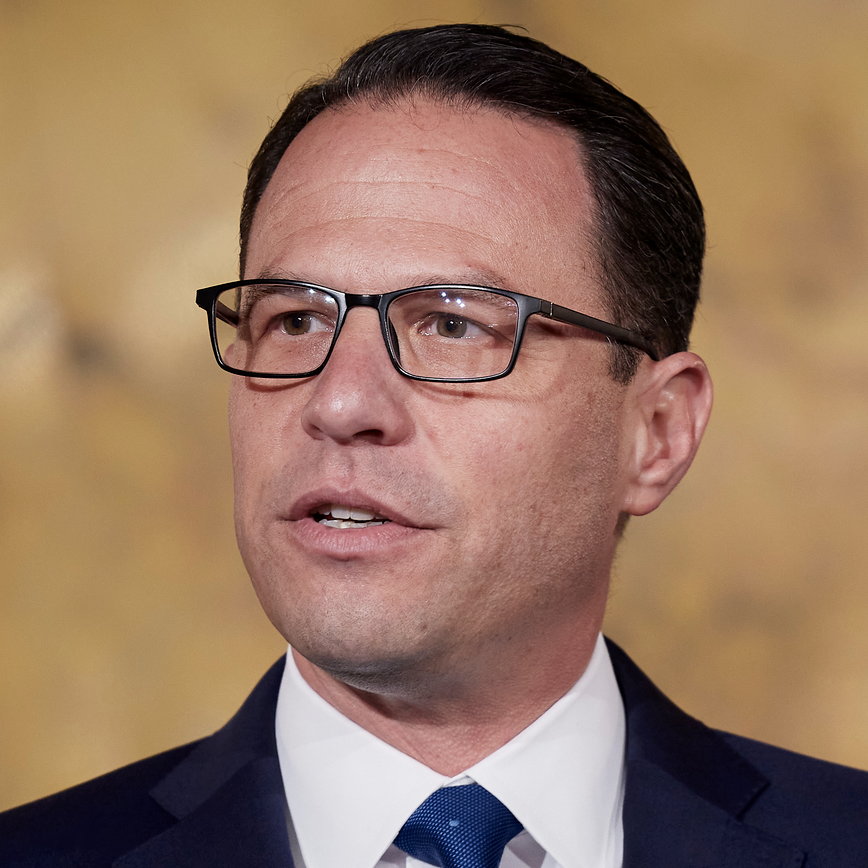
Josh Shapiro, Pennsylvania governor
A rising Democratic Party star, Shapiro is seen as a principal contender for the vice presidency. The 51-year-old became Pennsylvania’s governor last year, pledging to protect abortion rights and resisting calls to deploy the National Guard to tackle the influx of migrants into the state. He is reportedly backed by Wall Street donors who believe he will help Harris win a swing state that will play a decisive role in the race for the White House.
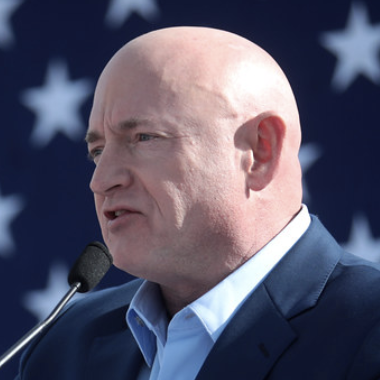
Mark Kelly, Arizona senator
The former astronaut and US Navy captain has positioned himself as a moderate in a hotly contested border state on the front line of the raging national debate over immigration. He became a leading advocate of gun control after his wife, former Congresswoman Gabrielle Giffords, was shot in the head in 2011. His record of accomplishment as a test pilot who logged 39 combat missions in the Gulf War compares favourably to the much-vaunted army credentials of Trump’s running mate JD Vance, who served in Iraq as a combat.
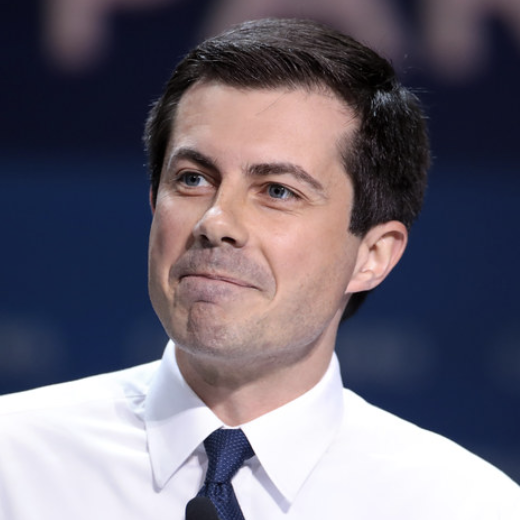
Pete Buttigieg, US transportation secretary
US Secretary of Transportation Pete Buttigieg built a strong fan base among Democratic Party voters during his 2020 primary run against both Biden and Harris, winning the Iowa caucus. The 42-year-old former mayor of South Bend, Indiana, later endorsed Biden and was picked to join the incoming administration in 2021 – the first openly gay man to hold a cabinet position correspondent.
UK Conservative leadership contest begins
Six MPs have entered the contest for leader of the Conservatives following their defeat in the general election last month. They are James Cleverly, Tom Tugendhat, Kemi Badenoch, Priti Patel, Robert Jenrick, and Mel Stride.
The four-month Conservative Party leadership race officially began with Tugendhat saying the leadership election would not be decided by policy and that there is broad agreement on “the ECHR, gender, tax rates, defence spending, net zero.” Tugendhat instead positioned himself as the person to unite the party and restore public trust. “Politics, like life, comes down to one simple rule: keep your promises. When the Conservative Party does that, it wins.”
Front runner Kemi Badenoch campaign openly criticised Rishi Sunak’s election campaign. ”In government, we had too much nodding along in the room and arguments outside it,” she posted: “That culture needs to change. We need to be honest with one another in private, and united in the direction we take afterwards.”
James Cleverley said, “I am putting myself forward … because I can unite the Conservative Party and overturn [Labour Leader Keir] Starmer’s loveless landslide.”
Contenders need 10 MP nominations to enter the contest.

Polls
In the US Vice President Kamala Harris opened a two-point lead over Republican presidential candidate Donald Trump after Biden ended his re-election campaign, a Reuters/Ipsos poll found on 30 July. This compares with the Economist poll of polls on the 31 July which shows Trump ahead by a point.
JD Vance, the Republican vice-presidential candidate, was selected by Donald Trump to reinforce his support among so called rust belt voters. But CNN polling released on 24 July shows that Vance has a negative six-point rating among the US electorate, while the average for vice-president selections since 2000 had been plus 19 points. No vice-president as far back as 1980 had polled so negatively, according to Harry Enten, CNN’s data analyst.
31 July 2024 from The Economist
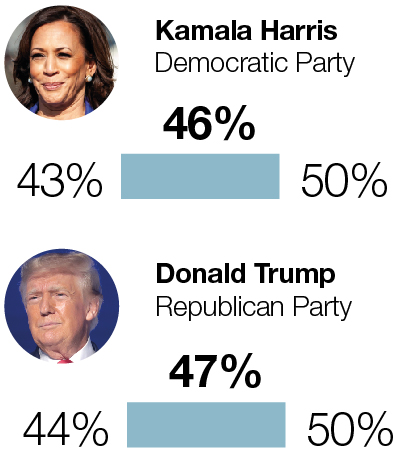
Policy watch
Click on the links to read the latest policy related information
Social media watch
For the 2024 US election, ‘Gen Zs’ are starting to become a sizeable proportion of those who will attend the voting booths. Ranging from 12-27 years old, this group makes up 20.69% of the US population and is highly political and addicted to social media. Harris’ use of social media platforms has gained praise from the TikTok and X community for embracing the current trend that is currently going viral, ‘brat summer’. The Vice President’s connection to the term comes from Charli XCX, whose newest album ‘Brat’ is responsible for creating the phrase, endorsing Harris as the next Democratic presidential candidate, posting ‘kamala IS brat’. ‘Brat’ has multiple definitions, including a messy and imperfect self-acceptance, party attitude and having a rebellious spirit. Using the signature ‘brat green’ for the new imagery on her X page, Harris’s connection to the phrase is also said to come from the boundary-breaking, femininity and intersectionality of being the first Black woman and first Asian American to lead a major party.

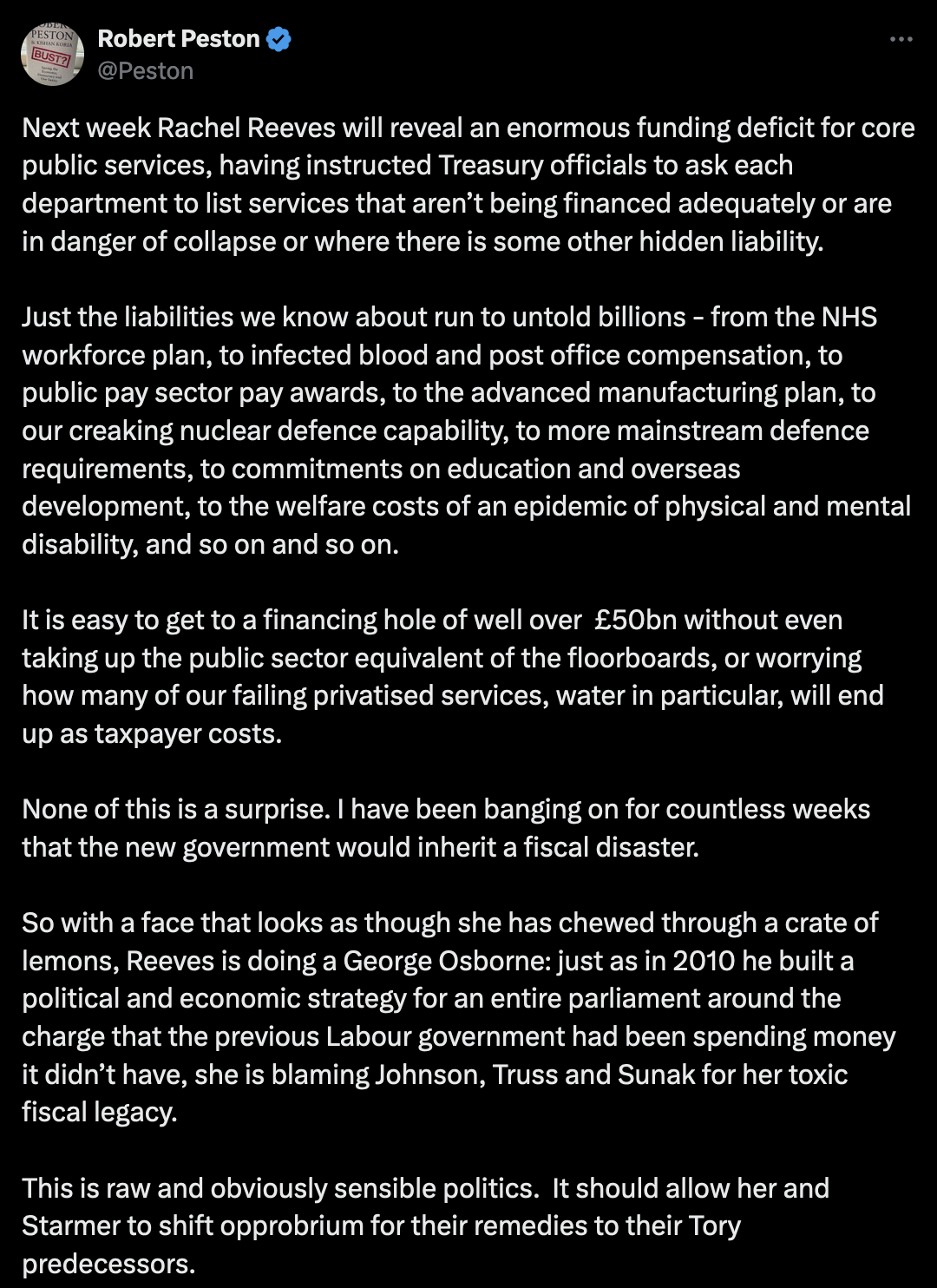
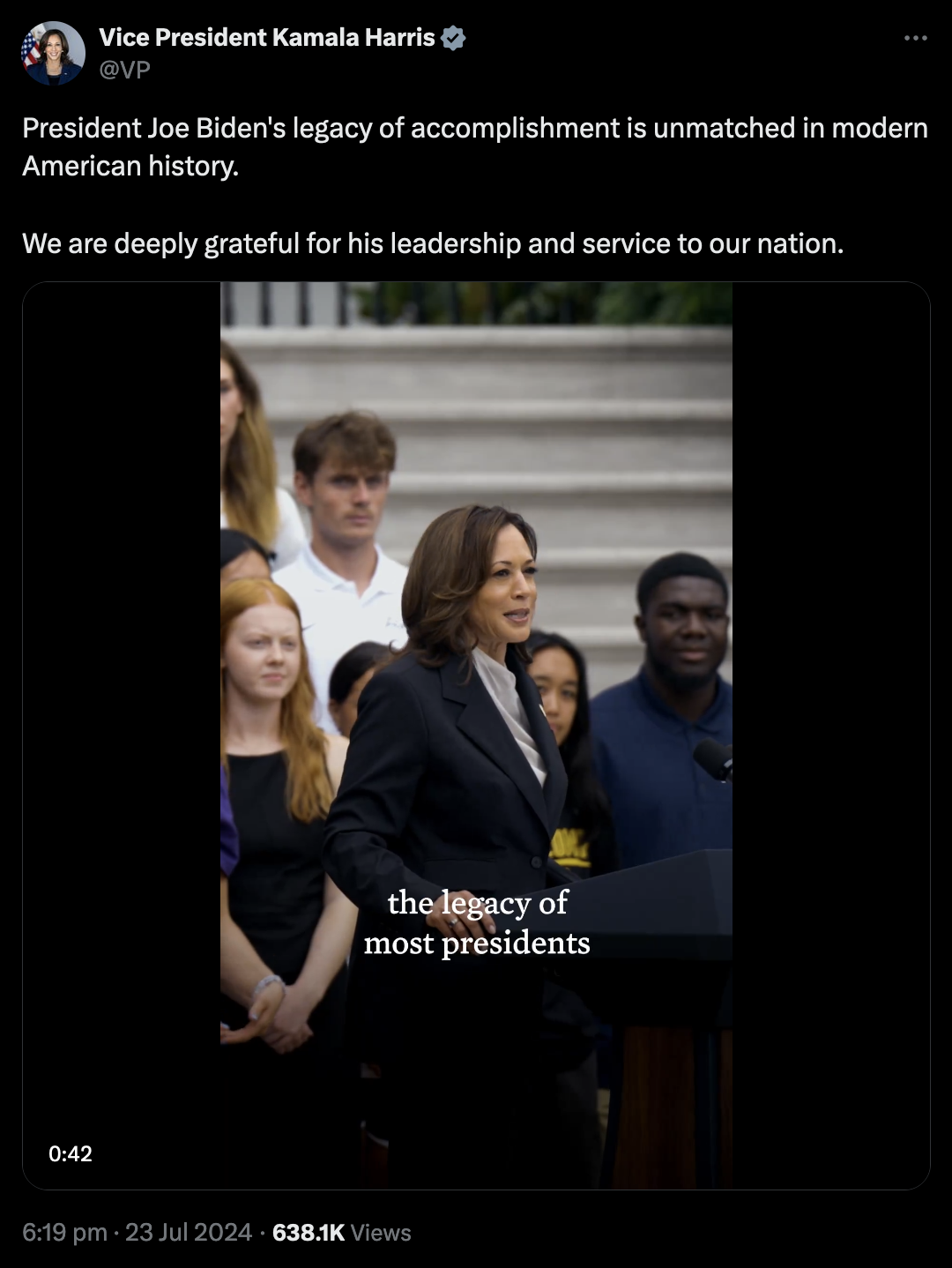
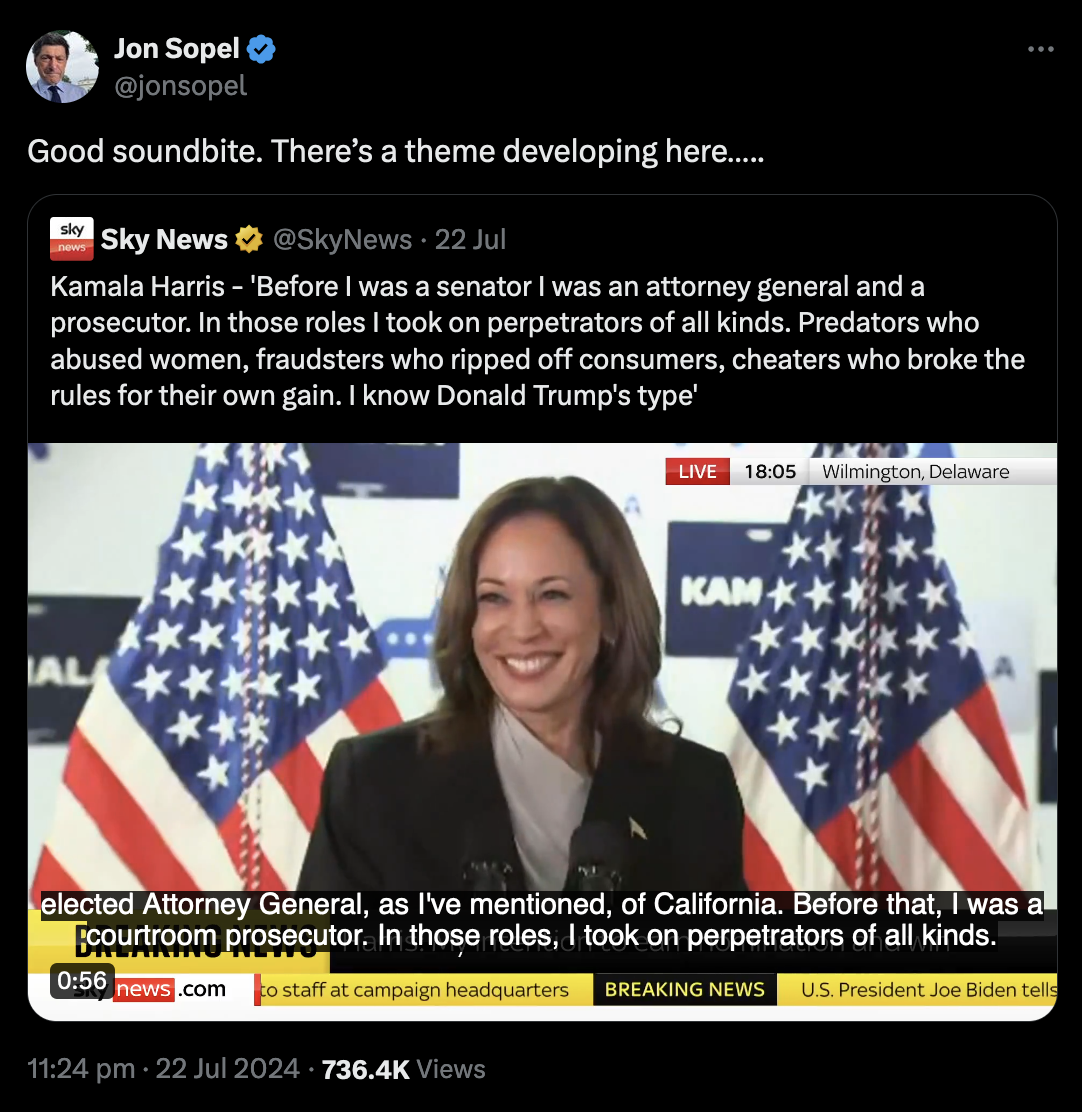
Election campaign watch
19 August – Democratic National Convention
10 September – Second presidential debate
5 November – Election day
6 January, 2025 – Results certification
20 January, 2025 – Inauguration
30 July – Parliamentary recess
2 September – Parliament returns
14 September – 17 September – Liberal Democrat Conference
22 September – 25 September – Labour Conference
29 September- 2 October – Conservative Conference
30 October – First Budget
Get in touch
Cressida.Tarver@haggie.co.uk



